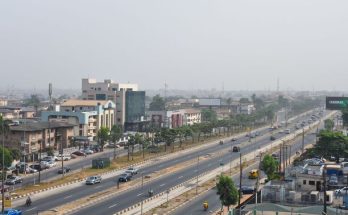By Sunkanmi Adewunmi
In the heart of West Africa’s largest city, a quiet transformation is unfolding. Lagos, known for its relentless hustle, chaotic traffic, and booming gig economy, is embracing a new way of working. Behind closed doors—in bedrooms, cafés, and co-working hubs—a growing number of professionals are going remote.
Why Lagos is Shifting to Remote Work
Remote work is no longer a trend; it’s the new normal. Lagosians, long worn down by daily traffic and long commutes, are finding freedom and flexibility in remote jobs. The COVID-19 pandemic accelerated this shift, making it clear that many jobs could be done just as effectively from home.
A Young, Digital-Savvy Workforce
Remote workers in Lagos are mostly young and energetic. Of 42 surveyed, 65% were under 35. While men make up a larger portion (62%), women are thriving too—especially in healthcare and creative industries. Flexibility is a major draw, allowing workers to juggle side hustles, caregiving, or earn income in foreign currencies.
Top Industries for Remote Work
The creative sector—media, design, marketing—leads the remote work wave, with 33% of respondents in this space. Freelancers follow at 24%, and tech workers like developers and analysts make up 19%. Healthcare also plays a role, especially in admin and telemedicine roles.

Why Remote Workers Love It
The biggest perk? Flexibility. Nearly 68% of respondents enjoy controlling their time. About 55% say remote work helps them avoid traffic, and 52% report better income—especially those working for foreign clients. Many also highlight cost savings on transport, food, and office wear.
The Hidden Costs
Remote work isn’t without its price. Around 45% say their income has grown, but 38% now spend ₦15,000–₦30,000 monthly on data, while 29% spend more. With constant power cuts, many rely on generators or solar panels, spending up to ₦40,000 monthly on electricity.
Challenges: Power, Internet & Burnout
Power remains the biggest challenge, with 81% citing outages as a barrier. Slow or unstable internet is another issue for 74%. Balancing work and personal life is hard for 62%—distractions, noise, and limited space are common complaints.
Is Life Better?
About 38% say remote work has improved their quality of life—more time for family, exercise, and rest. But 31% feel overworked, and 26% say their routines haven’t changed much. The impact depends on personal discipline and job type.

What Remote Workers Want
Improved infrastructure tops the list. A massive 90% say stable power is critical, and 74% want cheaper, better internet. About 45% believe employers should support their remote workforce with stipends for data and electricity.
Looking Ahead
Remote work is reshaping Lagos. Many are starting side hustles or relocating to quieter suburbs like Ikorodu. For this shift to be sustainable, Nigeria must invest in reliable infrastructure. But even with blackouts and dodgy Wi-Fi, Lagosians are making it work—because that’s what they do best.








